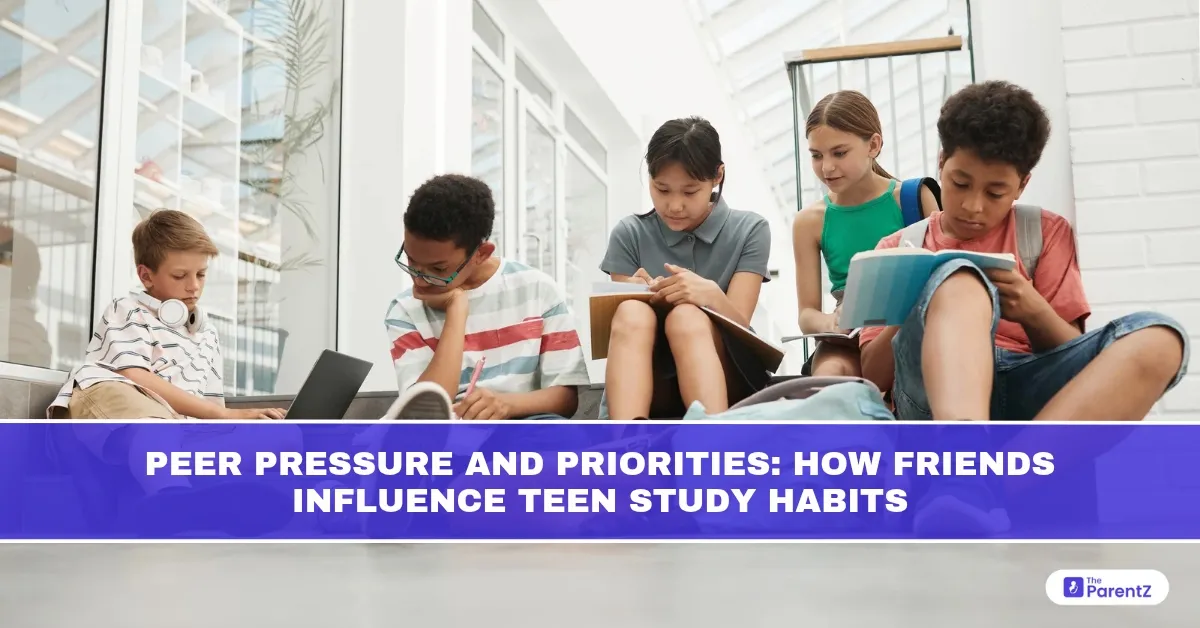"Mom, everyone's meeting up tonight to hang out." "But don't you have that math test tomorrow?" "It's fine - nobody else is studying for it either."
Sound familiar? Your kitchen has probably hosted this conversation more than once, leaving you torn between supporting their social life and their academic future.
The tug-of-war between friends and textbooks isn't new, but the battlefield has completely transformed. The peer pressure shaping your teen's study habits today operates with tools and intensity we never experienced in our youth. Their social world never turns off, never takes a break, and follows them everywhere—even into their bedroom during what should be study time.
Today's Peer Pressure: Not Your 90s "Just Say No" Campaign
Remember when peer pressure was mostly about saying no to drugs or alcohol at parties? Those pressures still exist, but today's reality is far more complex and constant.
Modern teens face 24/7 pressure through their devices. There's no coming home and closing the door on social dynamics anymore. The group chat never stops buzzing. The Snapchat streaks need maintaining. TikTok discussions from school continue well into the night.
When someone suggests blowing off studying for tomorrow's test, that message hits your teen's phone instantly—whether they're at their desk trying to focus or already battling distractions.
The Double-Edged Sword of Digital Connection
Today's teens live in two worlds simultaneously: the physical classroom and the digital social sphere. Their generation has mastered the art of split existence:
- Taking notes in class while responding to Instagram DMs
- Joining study groups that spend more time on TikTok videos than textbooks
- Using Discord "study servers" that quickly derail into gaming sessions
- Creating Google Docs for "collaborative" assignments where more chatting happens than actual work
This isn't necessarily because they lack discipline—it's because their social currency depends on staying connected. Disappearing to study for hours signals you're "not fun" or "too serious" to the group.
The Quiet Competition Nobody Talks About
Here's something parents rarely see: many teens downplay their academic efforts to appear effortlessly smart.
"I didn't even study" has become a badge of honor, even when it's not true. Admitting you spent hours preparing for a test can make you seem "try-hard" or "teacher's pet" in certain friend groups. So teens hide their studying, creating a false impression that good grades come without effort.
This leads to a damaging misconception: if you're naturally smart, you shouldn't need to study. Kids who actually need study time feel inadequate for putting in the work.
The Social Cost of Saying No
When your teen chooses study time over hanging out, they're not just missing a fun event—they're risking their social standing. Today's FOMO (Fear Of Missing Out) is documented in real-time:
- Group photos without them appear on Instagram
- Inside jokes develop in their absence
- Friend rankings on certain apps might drop
- Their social media engagement decreases, making their profile less visible
For today's teens, these social consequences feel as real and important as the academic ones of not studying.
How Today's Friendships Shape Study Habits
Friend groups tend to align on academic priorities, but not always how you'd expect:
The Achievement-Driven Friends
Some teen circles push each other toward excellence, sharing study resources and competing for the highest scores. These dynamics can motivate your teen, but sometimes create unhealthy perfectionism.
The Balance-Seekers
These groups value both academics and social life. They might create study sessions that include breaks for fun, helping develop time management skills.
The Disengaged Crowd
Some friend groups actively discourage academic effort, painting school as unimportant compared to social status, gaming achievements, or developing an online presence.
Helping Your Teen Without Becoming The Enemy
Understanding today's pressures is step one. Here's how to help without pushing your teen further into problematic dynamics:
- Validate their social concerns. Saying, "Just ignore what friends think," shows you don't understand their reality. Instead, acknowledge that social pressure is real and brainstorm solutions together.
- Create study-friendly spaces at home. Allow friends to study together at your place with appropriate breaks and snacks. This makes studying a social activity rather than an isolated one.
- Help them find their true academic allies. One good study buddy can counterbalance five friends who distract. Ask open-ended questions about which classmates seem to balance social life and academics well.
- Discuss digital boundaries without total bans. Work with them to create reasonable phone-free study periods, perhaps with rewarding social media breaks in between focused sessions.
- Share stories of real success. Today's teens need to hear that successful people put in effort. Share examples of celebrities, athletes, or influencers they admire who talk openly about working hard.
Conclusion
Your teen isn't navigating the same world you did. Their social landscape is more complex, more constant, and more documented than ever before. The study habits they develop now happen under unprecedented scrutiny from peers.
When helping your teen balance academics and social pressure, remember they're not choosing between studying and having fun—they're choosing between visible social connection and invisible academic effort, between immediate social rewards and delayed academic ones.
The most powerful thing you can do is create a home environment where they feel their social concerns are understood while gently guiding them toward friends who share their longer-term goals and values.
Sometimes, the best support isn't pushing harder for better grades—it's helping them find their people who make studying a normal, accepted part of teen life.





Be the first one to comment on this story.